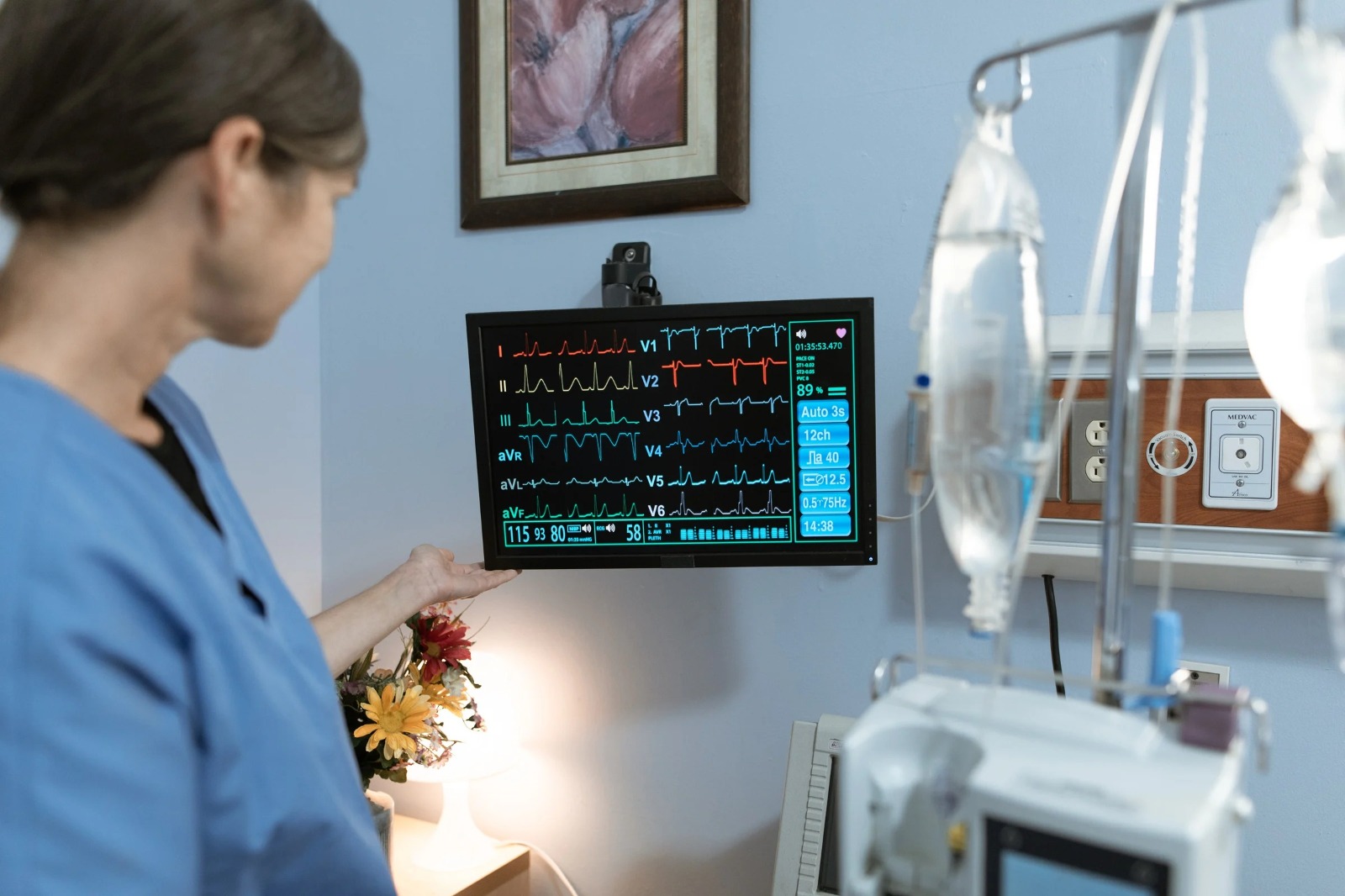Where to Get an ECG Scan Near Me – Everything You Need to Know
Electrocardiogram (ECG) scans are crucial diagnostic tools used to assess heart health. Whether you have been experiencing unusual symptoms like chest pain, palpitations, or dizziness, or your doctor has recommended it as part of a routine check-up, an ECG scan can provide critical insights into your heart’s condition.
If you are searching for an ECG scan near me, it’s essential to understand the procedure, its benefits, and where to find a reliable testing center. This article provides a comprehensive guide to ECG scans, what to expect, and how they can help in diagnosing heart conditions.
What is an ECG Scan?
Understanding the Basics
An ECG (Electrocardiogram) is a non-invasive test that records the electrical activity of the heart. It helps detect irregularities in heart rhythm, heart attacks, and other cardiac conditions. The test is quick, painless, and provides valuable insights into heart function.
How Does an ECG Work?
The test involves placing small electrodes on your chest, arms, and legs. These electrodes capture electrical impulses generated by the heart and display them as waves on a monitor or paper strip. A doctor analyzes these waves to detect any abnormalities.
Types of ECG Tests
1. Resting ECG
A standard test performed while you are lying down in a relaxed position. It helps assess basic heart function and detect irregular heartbeats.
2. Stress ECG (Exercise ECG)
Also known as a treadmill test, this is done while you walk or run on a treadmill. It evaluates how your heart functions under stress and helps diagnose issues like coronary artery disease.
3. Holter Monitoring
This is a portable ECG device worn for 24-48 hours to record heart activity continuously. It is useful for detecting intermittent irregular heart rhythms.
4. Event Recorder
Similar to Holter monitoring, but it records heart activity only when symptoms occur. It is ideal for diagnosing occasional heart irregularities.
Why Would You Need an ECG?
Common Reasons for ECG Tests
Chest pain or discomfort
Irregular heartbeats (arrhythmias)
Dizziness or fainting episodes
Shortness of breath
Monitoring heart health post-surgery or heart attack
Checking the effectiveness of heart medications
Who Should Get an ECG?
Anyone experiencing heart-related symptoms or those at risk of heart disease (due to high blood pressure, diabetes, smoking, or a family history of heart problems) should consider an ECG test.
How to Prepare for an ECG Scan?
Before the Test
Wear loose, comfortable clothing.
Avoid applying lotions or oils on your chest as they may interfere with electrode placement.
Inform your doctor about any medications you are taking.
Try to stay relaxed, as anxiety can affect test results.
During the Test
The technician will attach small electrodes to your chest, arms, and legs.
You will be asked to lie still while the machine records your heart activity.
The test typically takes 5-10 minutes.
After the Test
The results are usually available immediately.
A doctor will interpret the ECG and discuss any abnormalities if found.
Where to Get an ECG Scan?
There are several healthcare centers and diagnostic labs offering ECG scans. When selecting a facility, consider:
Reputation and reviews of the center
Accuracy and reliability of equipment
Availability of qualified cardiologists
Cost and insurance coverage
Understanding Your ECG Results
Normal ECG vs. Abnormal ECG
A normal ECG shows consistent and steady wave patterns, indicating a healthy heart. An abnormal ECG may suggest conditions such as:
Arrhythmia (irregular heartbeat)
Myocardial infarction (heart attack)
Coronary artery disease
Electrolyte imbalances
What If Your ECG is Abnormal?
An abnormal result does not always indicate a serious problem. Your doctor may recommend further tests like an echocardiogram, stress test, or blood tests to confirm a diagnosis.
Benefits of ECG Testing
Early detection of heart disease
Quick and painless procedure
Helps in monitoring ongoing heart conditions
Aids in assessing the effectiveness of heart treatments
Conclusion
An ECG scan is a valuable diagnostic tool that helps assess heart health and detect potential problems early. If you are experiencing symptoms or require a routine heart check-up, finding a reliable ECG scan near me is essential. With modern medical advancements, getting an ECG is now quick, convenient, and highly accurate in diagnosing heart-related conditions.
Frequently Asked Questions (FAQs)
1. What is the difference between an ECG and an echocardiogram?
An ECG records the electrical activity of the heart, while an echocardiogram uses ultrasound waves to create images of the heart’s structure and function.
2. Is an ECG painful?
No, an ECG is a non-invasive and painless procedure.
3. How long does an ECG test take?
A standard ECG test takes about 5-10 minutes to complete.
4. Can an ECG detect all heart problems?
While an ECG is useful for detecting many heart conditions, some issues may require additional tests like echocardiography or cardiac MRI.
5. Do I need a doctor’s referral for an ECG?
It depends on the healthcare facility. Some clinics may allow walk-ins, while others require a doctor’s referral.
6. What should I avoid before an ECG test?
Avoid caffeine, smoking, and heavy meals before the test, as they may affect heart rate and ECG readings.
7. Can I exercise before an ECG?
It is best to avoid strenuous exercise before a resting ECG, as it may alter the results.
8. What happens if my ECG is abnormal?
Your doctor may suggest further tests or treatments based on the findings of your ECG.
9. Are ECG results instant?
Yes, the results are typically available immediately after the test.
10. How often should I get an ECG done?
If you have a history of heart disease or risk factors, your doctor may recommend regular ECGs. Otherwise, an ECG is usually done when symptoms arise.
